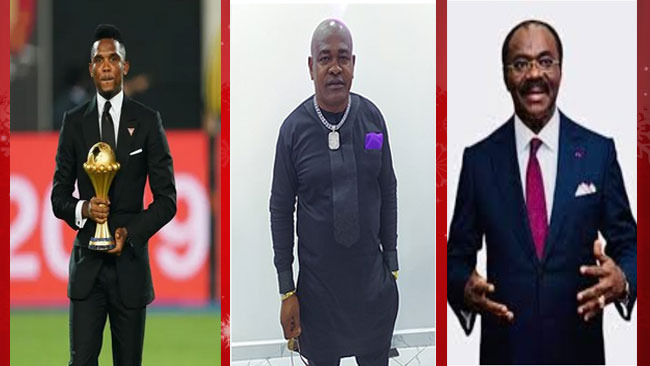4, May 2017
Soldiers representing U.S. Army Africa currently in Cameroon 0
Soldiers representing U.S. Army Africa are currently in Cameroon for exercise Unified Focus 17, the second accord event of the year. The accord series is composed of four major events scheduled to take place intermittently on the African continent through the beginning of August. Exercise Justified Accord 17 was held in Ethiopia last month, and the following exercises, United Accord 17 and Shared Accord 17, will take place in Ghana and South Africa, respectively.
The accord series is a U.S. Africa Command program composed of four annual, combined and joint military exercises that take place in African countries and encourage partnerships between participants from United States, African Union, European and other coalition partner forces and agencies. Although each event addresses a specific peacekeeping or security issue, they all share common objectives: communication and interaction between partners, and mutual readiness training, said Col. Anthony J. Healey, the U.S. Army Africa training, readiness and exercises director.
“The exercises facilitate enhancing information sharing and cooperation on regional security issues, strengthening regional access and freedom of movement, and increasing the participating forces’ abilities to collaborate on common missions and increase their readiness for real-world scenarios,” he said.
Until recently, each exercise was named for its targeted region. The current iterations, however, reflect the specific focus of the event instead, according to Healey. “The exercises were regionally aligned: Southern Accord, Eastern Accord, Central Accord … but when AFRICOM changed (from region-based operations) to lines of effort-based operations, they changed the names to match,” he said.
The accord exercises generally can fall into one of three categories: tabletop, command post and field training. Tabletop exercises often include senior personnel working through the decision-making process they would use in a crisis scenario. These exercises can take place in a classroom environment and include instruction from subject matter experts, Healey said.
Command post exercises are expanded tabletop exercises for commanders and staff. They require increased tactical operations and communications and may be simulation driven. These exercises can be conducted on a garrison or in the field.
Field training exercises simulate realistic combat conditions and integrate the total force, involving combat units, drills and situational training exercises, as well as the personnel required for tabletop and command post exercises. A year or more of planning and smaller events with other U.S., partner and host nation organizations go into each exercise, Healey said, which helps coordinators overcome some of the challenges that arise when multiple agencies and cultures work toward one vision and grapple with logistics.
“You’re bringing multiple agencies together and trying to come up with a singular plan to execute,” he said. “Does everyone agree with it? Can you support this? Where is the money coming from? You have to plan transportation well in advance, contracts have to be letted out … those are some of the challenges we have to work through to get from initiation to execution.”
Despite any difficulties that might accompany USARAF’s participation, there is inherent value in building and strengthening partnerships through the accord exercises, Healey said. “Whenever we go anywhere on the globe these days, it’s going to be with another partner. (Through these exercises), we get that cultural understanding from working with partners, not just American forces. … Ensuring that everyone has a shared understanding of how to solve the issue in the scenario builds confidence between the partner nations and interagencies.”
Culled from Defenseweb


























4, May 2017
Anglophone journalists protest police harassment, media crackdown 0
Some news reporters grouped under the National Union of Cameroon Journalists, SNJC converged in Buea and demanded the immediate release of all Southern Cameroon journalists arrested during the current Anglophone uprising.
They marched through the streets of Buea from the University junction to Miss Bright Inn brandishing placards which called on the Francophone government to stop harassing journalists. Others held banners with messages calling for the release of some six Anglophone journalists arrested this year.
The World Press Freedom Day commemoration in the Southern Cameroon was observed under strict and firm instructions that journalists should appear in black, signifying the stifling of Press Freedom. Kum Leonard, President of SNJC revealed that Southern Cameroon journalists were now in hiding and some like Tina Nene Nganda have fled the country.
Appeals have been made to competent authorities to make sure that rights of journalists are respected in Cameroon. Celebrations marking WPFD in Fako ended in Limbe with the participation of the loud sounding nothing Peter Essoka, President of the National Communication Council. The event was organized by the UN information center for Central Africa.
Source: CIN